Meet The Faculty
/prod01/channel_2/media/mccms/content-assets/academics/residencies-and-fellowships/infectious-diseases-fellowship-arizona/size-1024X512_Infectious-diseases-faculty-group-AZ-WF2407991_0004.jpg)
The Division of Infectious Diseases at Mayo Clinic's campus in Arizona is staffed by specialists dedicated to patient care, research, and education in their daily practices.
From the program director
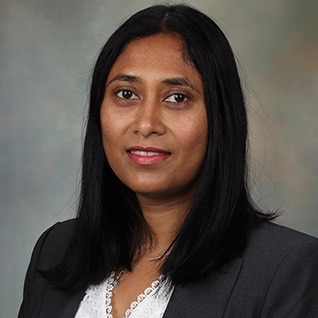 Mayo Clinic training programs foster a diverse and inclusive culture of lifelong learning, create a conducive environment to deliver outstanding patient care in multidisciplinary teams, and provide unparalleled opportunities for research and education.
Mayo Clinic training programs foster a diverse and inclusive culture of lifelong learning, create a conducive environment to deliver outstanding patient care in multidisciplinary teams, and provide unparalleled opportunities for research and education.
Mayo Clinic School of Graduate Medical Education (MCSGME) is home to more than 270 individual training programs that cover every medical and surgical specialty across the three Mayo Clinic campuses. MCSGME oversees the largest number of ACGME-accredited programs in the United States. Learn more about why residents and fellows choose Mayo Clinic.
Mayo Clinic's Arizona campus was established in 1987. Since our inception, we have grown into a tertiary care institution with more than 500 physicians, along with more than 220 residents and fellows.
Our fellowship has been designed to provide an exceptional learning experience in all aspects of clinical infectious diseases. Our faculty members have years of experience training students, residents, and fellows. Several are world-renowned for their research and expertise and have many active and ongoing clinical trials. You have the opportunity to participate in the three-site case conferences in which faculty and fellows from the three Mayo Clinic campuses present and discuss challenging cases. Weekly infectious diseases core curriculum lectures are delivered by renowned faculty from all three Mayo Clinic sites.
Other valuable offsite rotations include an HIV continuity clinic at Valleywise Healthcare Center, pediatric infectious diseases at Phoenix Children's Hospital, and Maricopa County sexually transmitted infections and TB clinics. You have access to patient medical records across Mayo Clinic's campuses to facilitate coordinated patient care and collaborative clinical research. Opportunities for elective rotations and ample time for research will result in a well-rounded educational experience.
At the end of your fellowship, I'm confident that you will be fully equipped to pursue your chosen career path in infectious diseases. We look forward to hearing from you soon.
Sandhya R. Nagarakanti, M.B.B.S., M.D.
Infectious Diseases Fellowship Program Director
From the associate program director
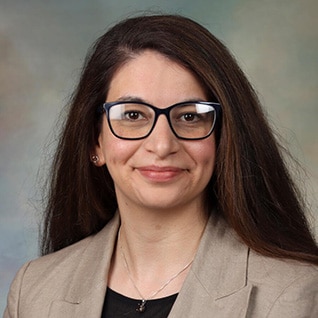 Our Infectious Disease Fellowship offers an outstanding training environment supported by faculty who are deeply committed to teaching, mentorship, and guiding fellows through all stages of career development.
Our Infectious Disease Fellowship offers an outstanding training environment supported by faculty who are deeply committed to teaching, mentorship, and guiding fellows through all stages of career development.
With our diverse and complex patient population, fellows have ample opportunities to explore a wide range of subspecialty areas within Infectious Diseases, ensuring a rich and well-rounded clinical and academic experience.
This is done in a truly collaborative environment —working closely with other training programs, multidisciplinary teams, and dedicated ancillary staff.
Once you have completed your training, there is no doubt as to your ability to join and make an impact on the infectious disease community.
We thank you for your interest in our program and we look forward to hearing from you soon.
Abeer AlMajali, M.D.
Infectious Diseases Fellowship Associate Program Director
Faculty
Our faculty members have extensive experience in training medical students, residents, and fellows. They have been actively involved in clinical research in diverse areas of infectious diseases, resulting in numerous seminal publications over the years. Residents, students, and fellows have vastly benefited from ongoing research collaborations, publications, and mentorship by our faculty.
The division also includes an infectious diseases (ID) pharmacist, two nurse practitioners, and two nurses.
- Antimicrobial Stewardship Program. The Mayo Clinic campus in Phoenix, Arizona, has a robust ASP that is accomplished in conjunction with ID faculty and two ID pharmacists. You have the opportunity to assist, enforce, and participate in research and quality improvement endeavors.
- Mayo Clinic Outpatient Parenteral Antimicrobial Therapy (MOPAT) program. Mark Burns, C.N.P., D.N.P., N.P., M.S., and Amy Kole, P.A.-C., are primarily responsible for our award-winning MOPAT Program, which has been a key component of our practice for careful monitoring and follow-up of patients on parenteral antimicrobial therapy. As a fellow, you play a key role in this process for their inpatient consultations when discharged on such antimicrobials.
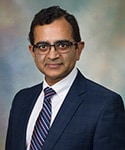 |
Holenarasipur Vikram, M.D.Medical Director, Transplant Infectious Diseases & Professor of Medicine in the Division of Infectious Diseases Medical school: Bangalore Medical College, Bangalore University |
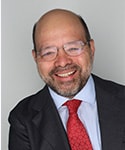 |
Edward Cachay, M.D.Senior Associate Consultant Medical school: Medical School Universidad Federico Villarreal, Lima-PERU |
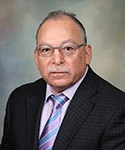 |
Robert Orenstein, D.O.Professor of Medicine in the Division of Infectious Diseases Medical school: College of Osteopathic Medicine, Des Moines University |
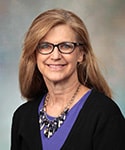 |
Janis Blair, M.D.Professor of Medicine in the Division of Infectious Diseases Medical school: University of Southern California School of Medicine |
.jpg) |
Sandhya Nagarakanti, M.B.B.S., M.D.Program Director Medical school: Osmania Medical College |
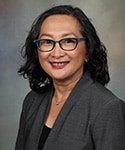 |
Teresa Seville, M.D.Chair, Antimicrobial Stewardship Program Medical school: College of Medicine, University of the Philippines |
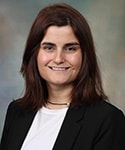 |
Jamilah Shubeilat, M.B.B.S., M.D.Co-Vice Chair, Infection Prevention and Control Medical school: University of Jordan Medical School |
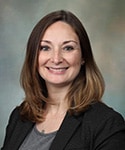 |
Lisa Speiser, D.O.Chair, Infection Prevention and Control Subcommittee Medical school: Arizona College of Osteopathic Medicine, Midwestern University |
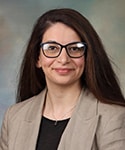 |
Abeer AlMajali, M.D.Senior Associate Consultant Medical school: Weill Cornell Medicine in Qatar |
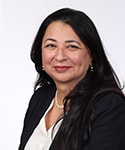 |
Maheen Zehra Abidi, M.B.B.S., M.D.Associate Professor of Medicine Medical school: Dow University of Health Sciences |
Meet more faculty
Pharmacy
.jpg) |
Daniel Ilges, Pharm.D., R.Ph., BCIDPAssistant Professor of Pharmacy in the Division of Infectious Diseases Medical school: University of Health Sciences & Pharmacy in St. Louis, MO |
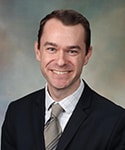 |
Drew Dickinson, Pharm.D., R.Ph.Infectious Diseases Clinical Pharmacy Specialist Medical School: University of California San Francisco Residency: Hospital of the University of Pennsylvania |
Microbiology
.jpg) |
Andrew Bryan, M.D., Ph.D.Associate Professor of Laboratory Medicine and Pathology Medical school: University of Michigan Medical School Residency: University of Washington |
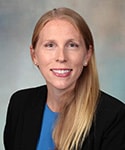 |
Erin Graf, Ph.D.Co-Director, Microbiology Laboratory Medical school: University of Maryland, BS, Cell Biology and Molecular Genetics |
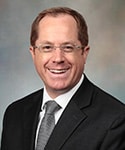 |
Thomas Grys, Ph.D.Director, Arizona Microbiome Program Medical school: Gustavus Adolphus College, BA, Biochemistry and Chemistry |
External faculty
Ann Khalsa, M.D., M.S., MSEd, AAHIVSValleywise Community Heath Center, HIV/AIDS Clinic Medical school: Keck School of Medicine of the University of Southern California |
Renuka Khurana, M.D.TB/STD Clinic at Maricopa County Department of Public Health Services Medical school: Maharshi Dayanand University Rohtak/Maharaja Agrasen Institute of Medical Research and Education |
R. Nick Staab, M.D. M.S.P.H.Infectious Diseases at Maricopa County Department of Public Health Medical school: Keck School of Medicine of University of Southern California |
Phoenix Children Hospital - Pediatrics Infectious Diseases
Wassim Ballan, M.D.Division Chief of Infectious Diseases, Medical Director of the Antimicrobial Stewardship. & Associate Director of the Infection Prevention Program Medical school: American University of Beirut, Lebanon |
Scott Ostdiek, M.D.Medical Director of Infection Prevention Program Medical school: University of Nebraska College of Medicine |
Advisers and mentors
Faculty advisers are available to provide comprehensive educational advice and personal support. You meet with your adviser periodically throughout the program to review your progress and career goals and ensure that your educational needs are being met. Your adviser may serve as a contact point for introducing you and your family to the Phoenix metropolitan area and the Mayo Clinic system.
Visiting professors
Many prominent professors visit Mayo Clinic each year. They present their work during lectures, participate in hospital rounds and have informal discussions with trainees. You are encouraged to take full advantage of these educational opportunities.